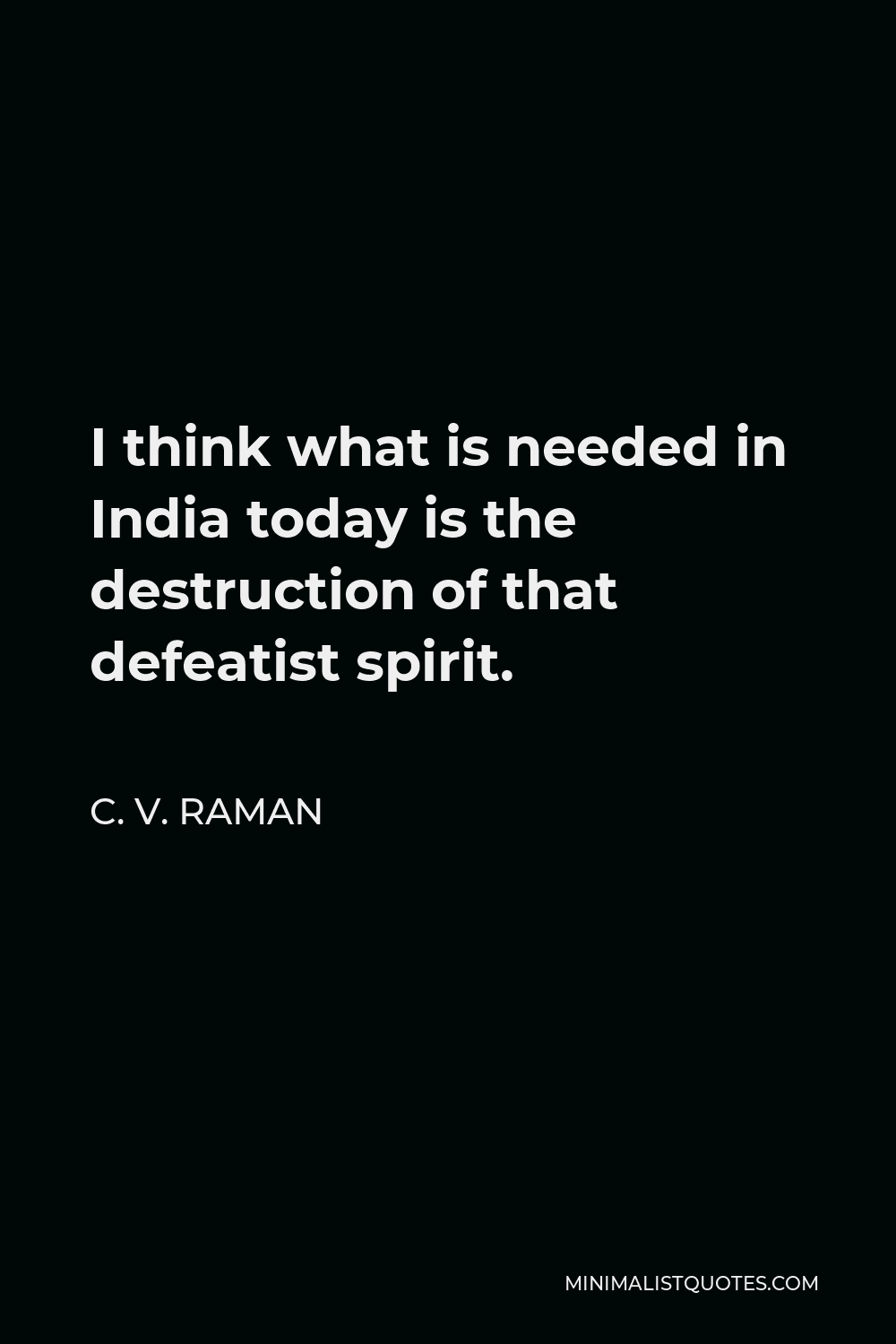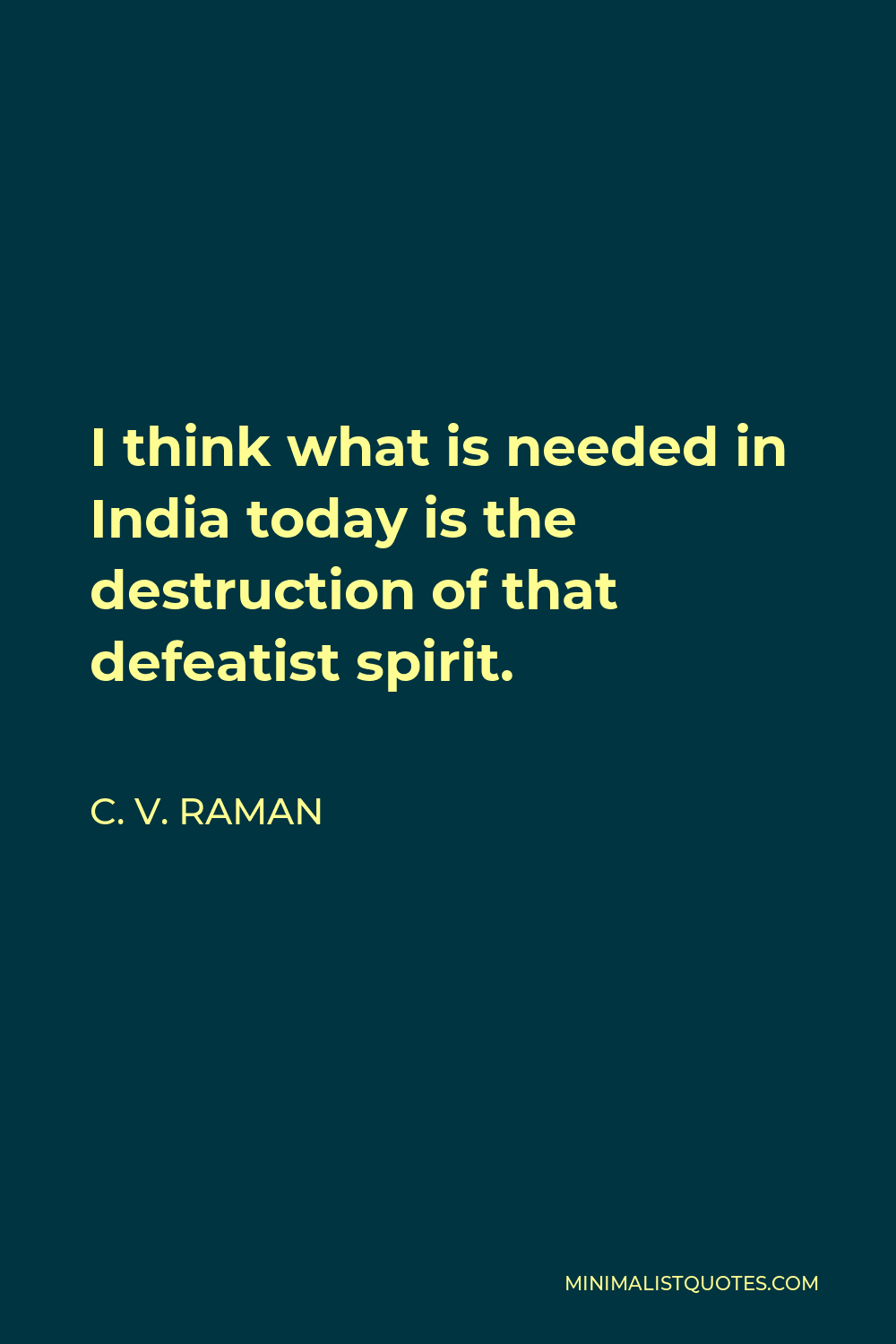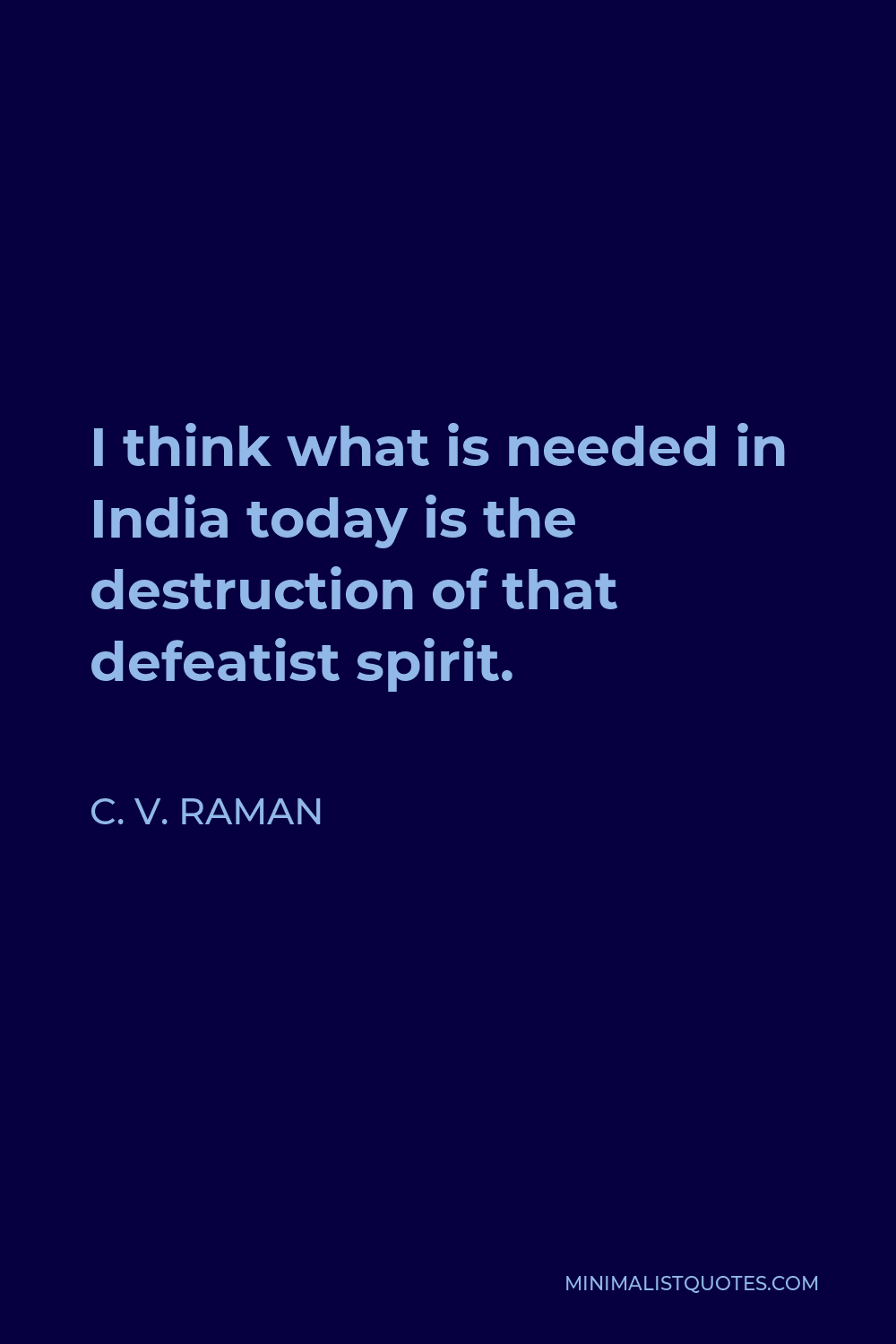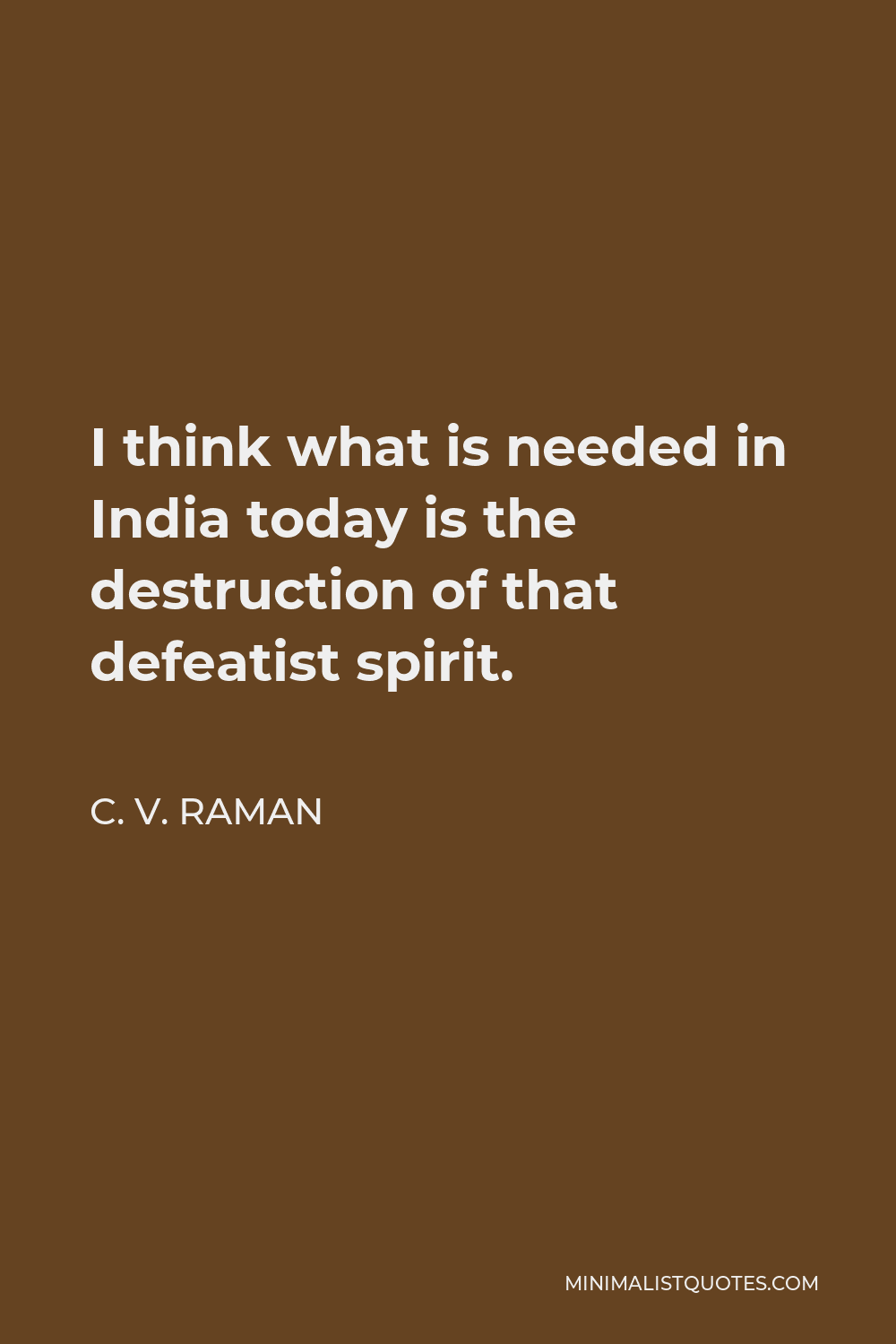When we consider the fact that nearly three-quarters of the surface of the globe is covered by oceanic water.
C. V. RAMANI think what is needed in India today is the destruction of that defeatist spirit.
More C. V. Raman Quotes
-





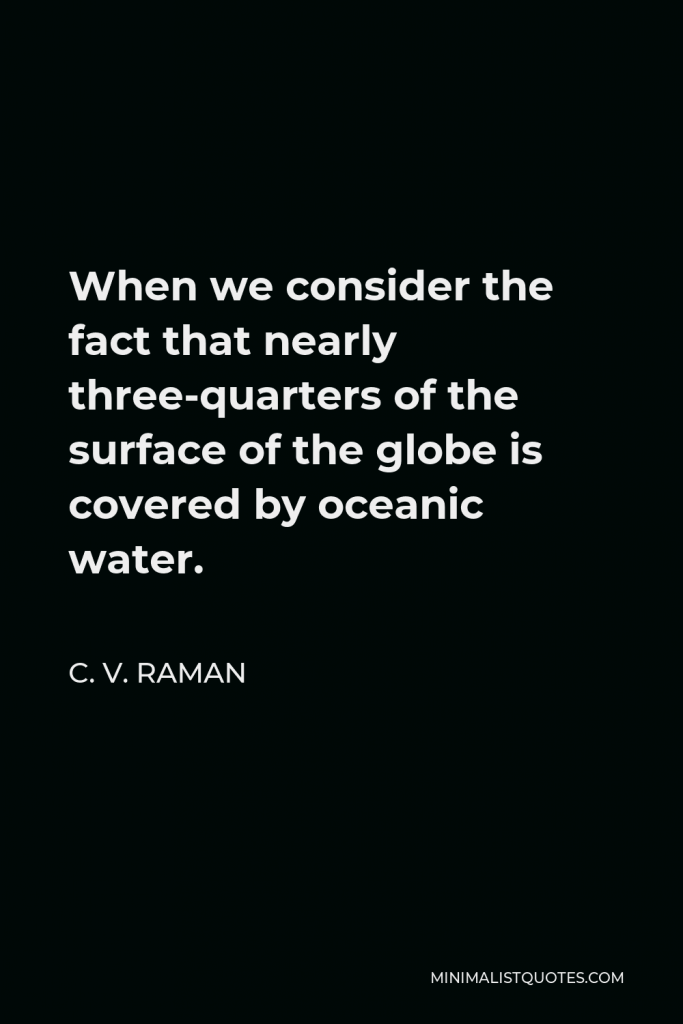

-







We need a spirit of victory, a spirit that will carry us to our rightful place under the sun, a spirit which can recognize that we, as inheritors of a proud civilization, are entitled to our rightful place on this planet. If that indomitable spirit were to arise, nothing can hold us from achieving our rightful destiny.
C. V. RAMAN -





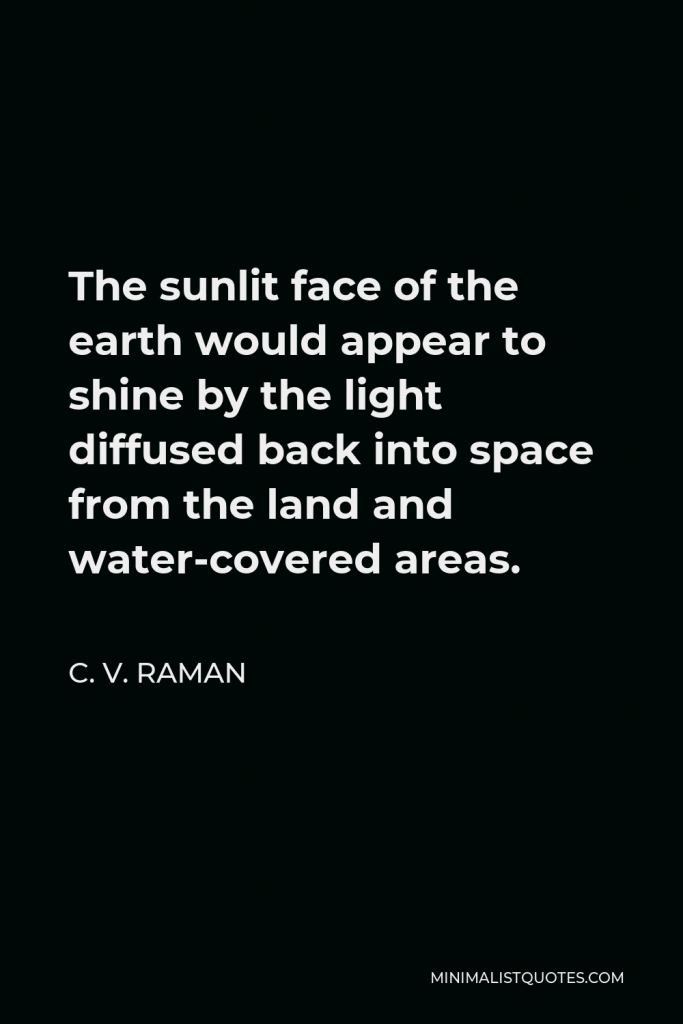

The sunlit face of the earth would appear to shine by the light diffused back into space from the land and water-covered areas.
C. V. RAMAN -





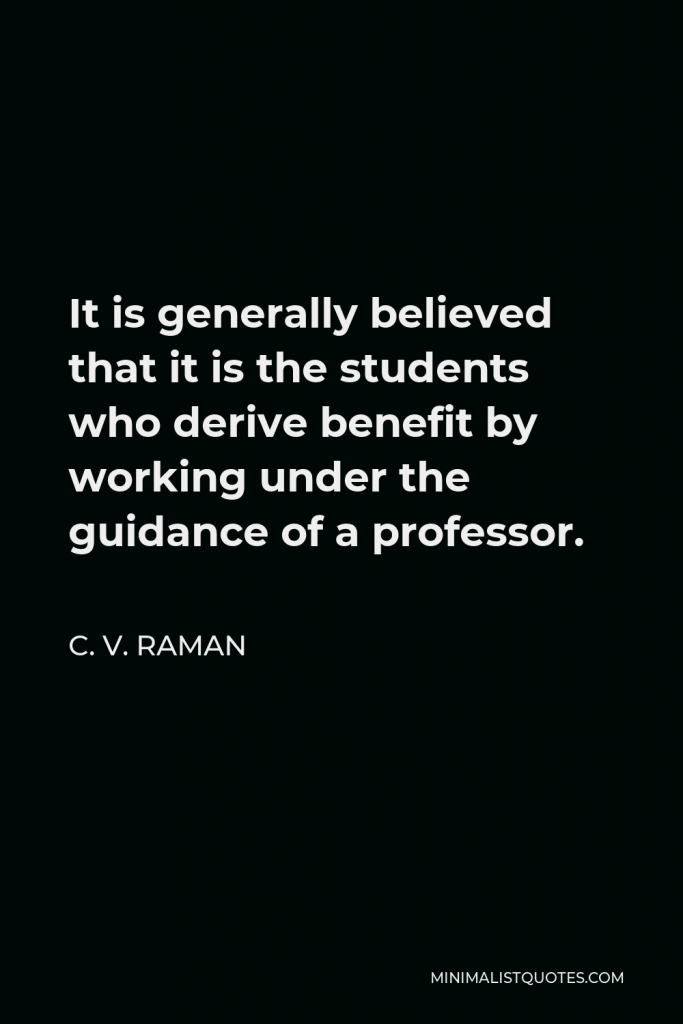

It is generally believed that it is the students who derive benefit by working under the guidance of a professor.
C. V. RAMAN -





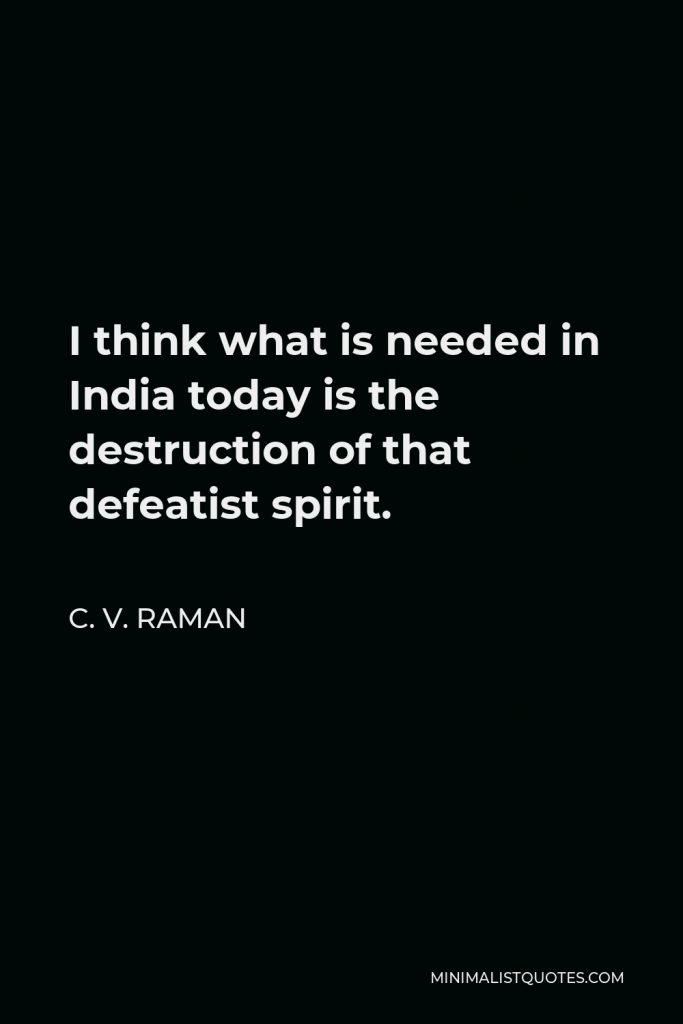

I think what is needed in India today is the destruction of that defeatist spirit.
C. V. RAMAN -





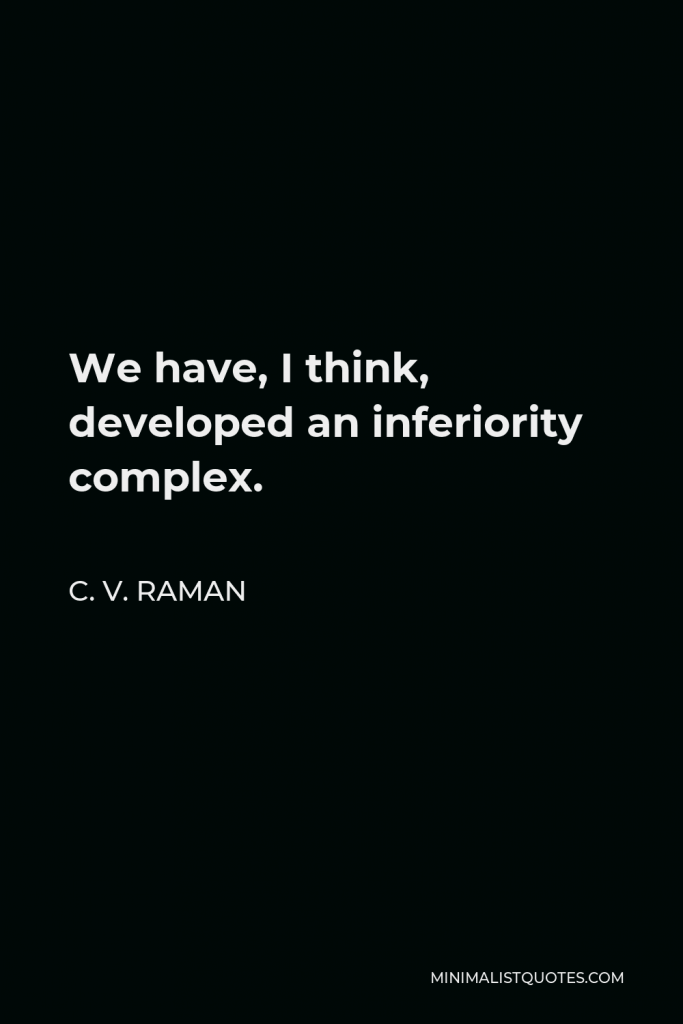

We have, I think, developed an inferiority complex.
C. V. RAMAN -





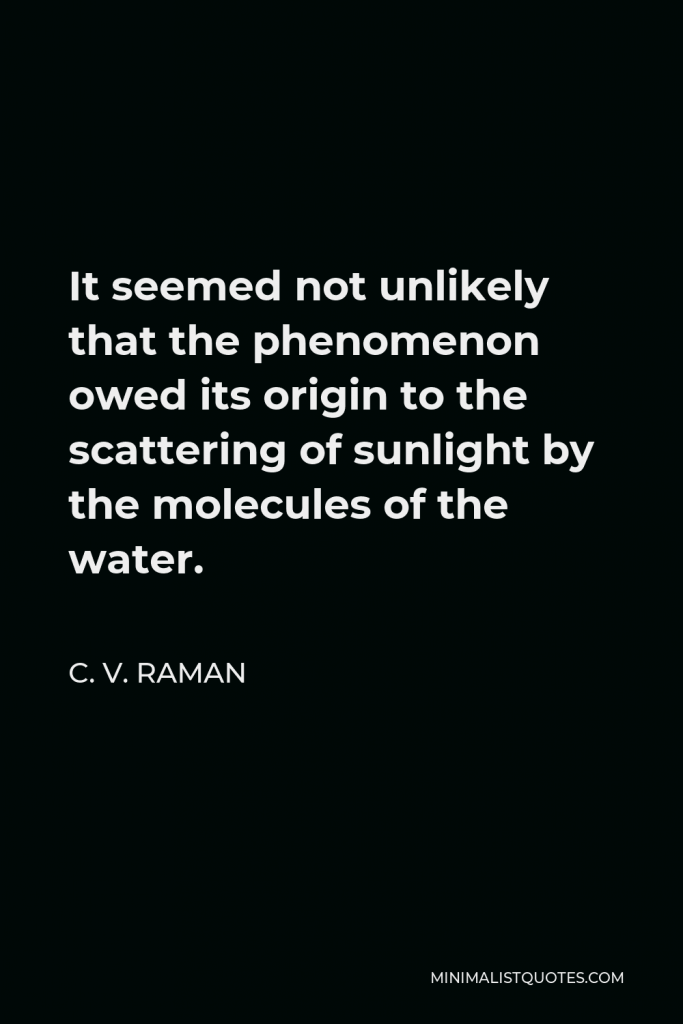

It seemed not unlikely that the phenomenon owed its origin to the scattering of sunlight by the molecules of the water.
C. V. RAMAN -





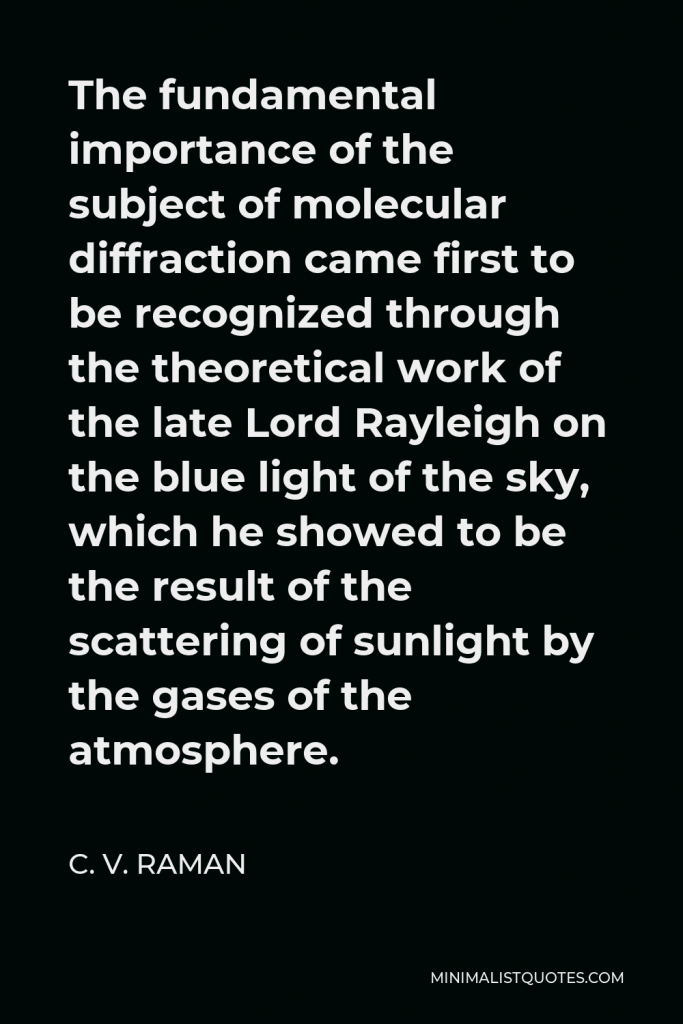

The fundamental importance of the subject of molecular diffraction came first to be recognized through the theoretical work of the late Lord Rayleigh on the blue light of the sky, which he showed to be the result of the scattering of sunlight by the gases of the atmosphere.
C. V. RAMAN -





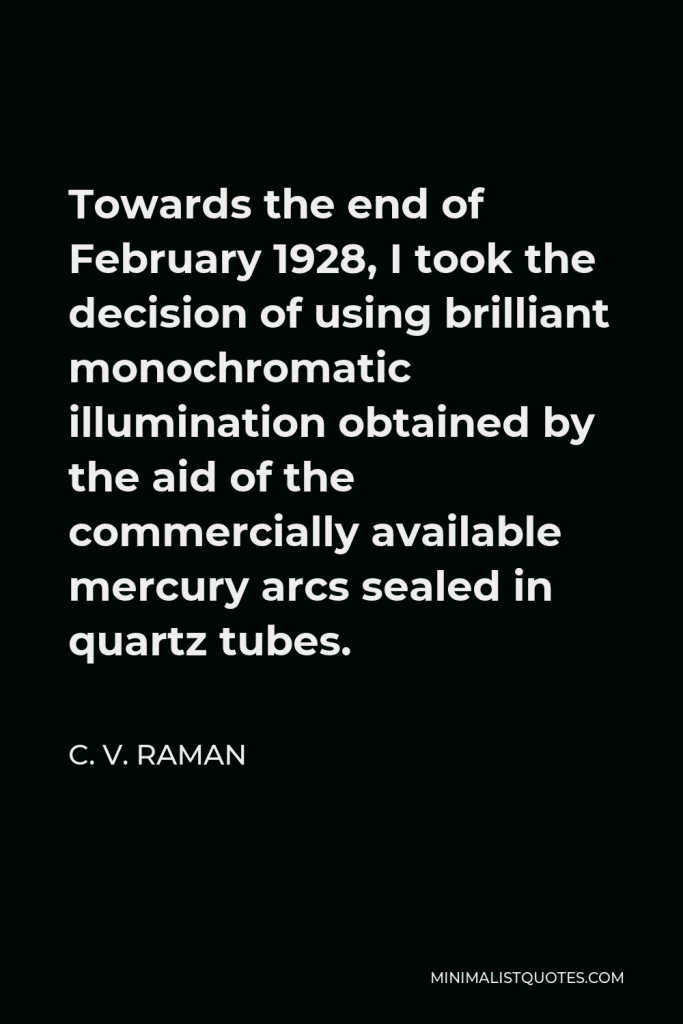

Towards the end of February 1928, I took the decision of using brilliant monochromatic illumination obtained by the aid of the commercially available mercury arcs sealed in quartz tubes.
C. V. RAMAN -





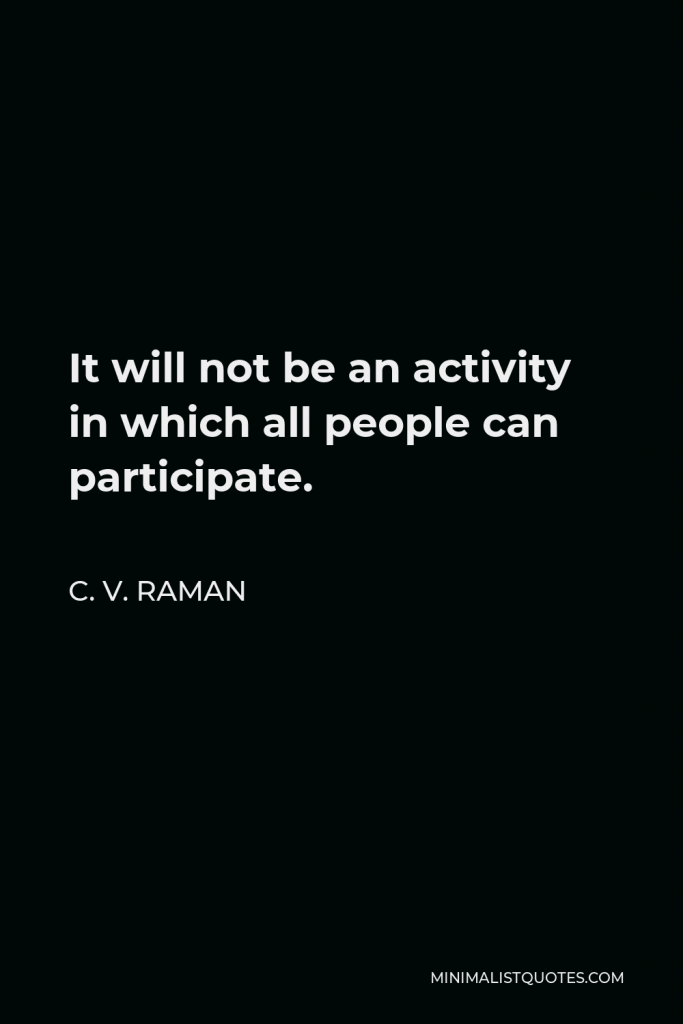

It will not be an activity in which all people can participate.
C. V. RAMAN -





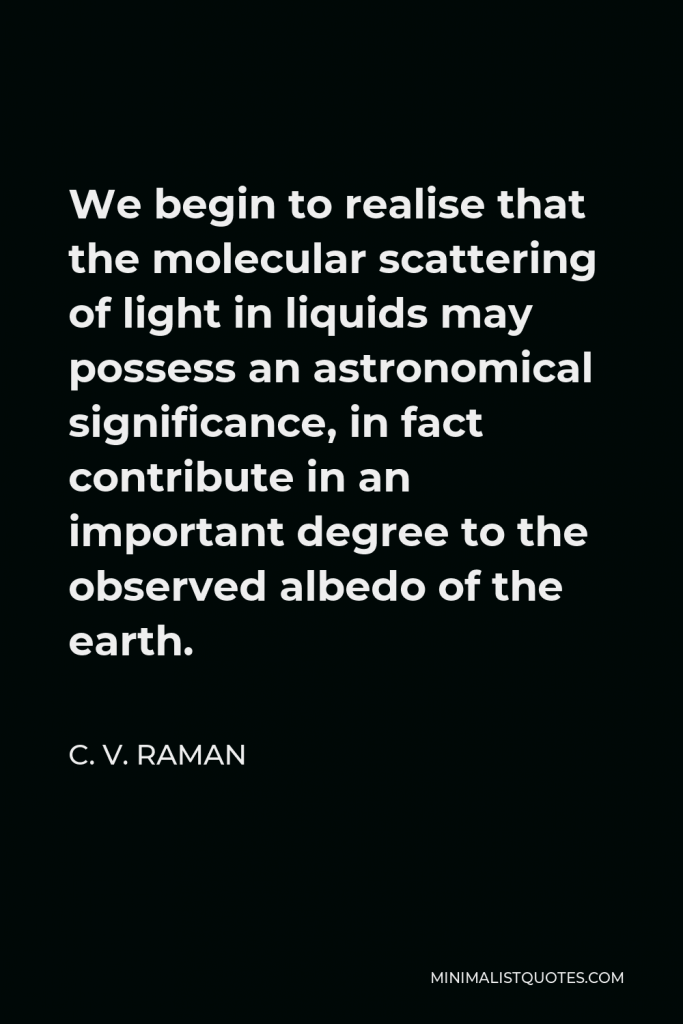

We begin to realise that the molecular scattering of light in liquids may possess an astronomical significance, in fact contribute in an important degree to the observed albedo of the earth.
C. V. RAMAN -





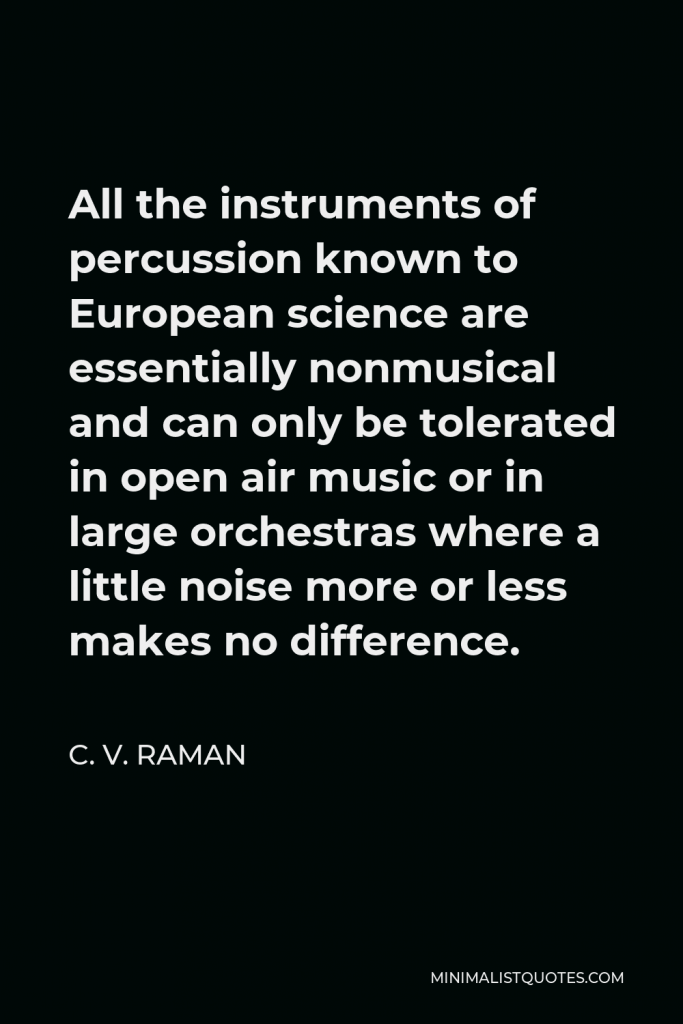

All the instruments of percussion known to European science are essentially nonmusical and can only be tolerated in open air music or in large orchestras where a little noise more or less makes no difference.
C. V. RAMAN -





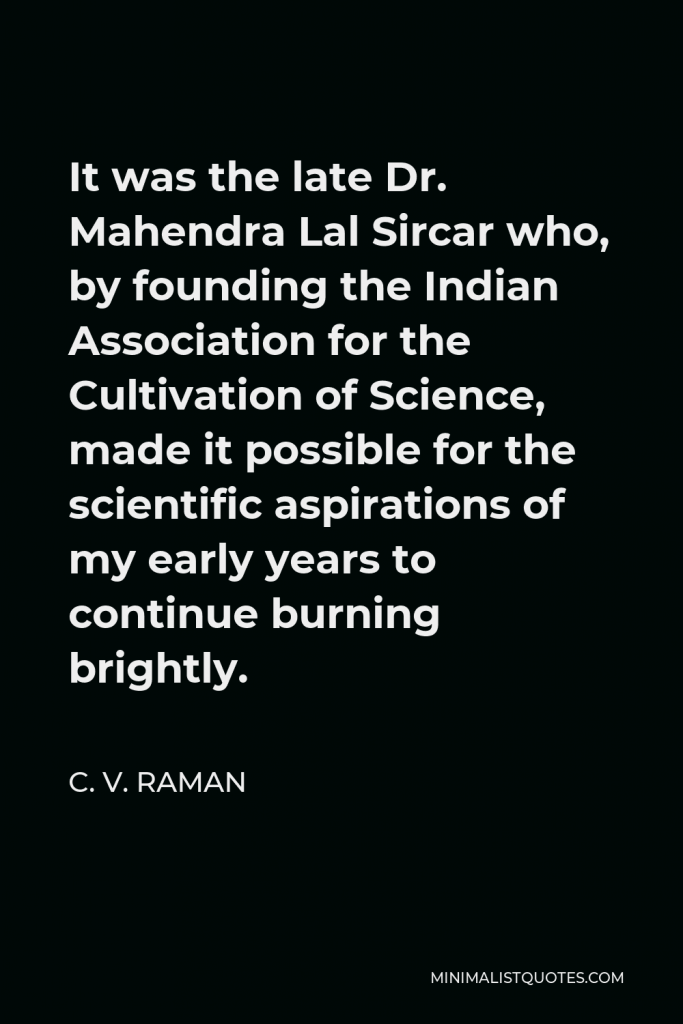

It was the late Dr. Mahendra Lal Sircar who, by founding the Indian Association for the Cultivation of Science, made it possible for the scientific aspirations of my early years to continue burning brightly.
C. V. RAMAN -





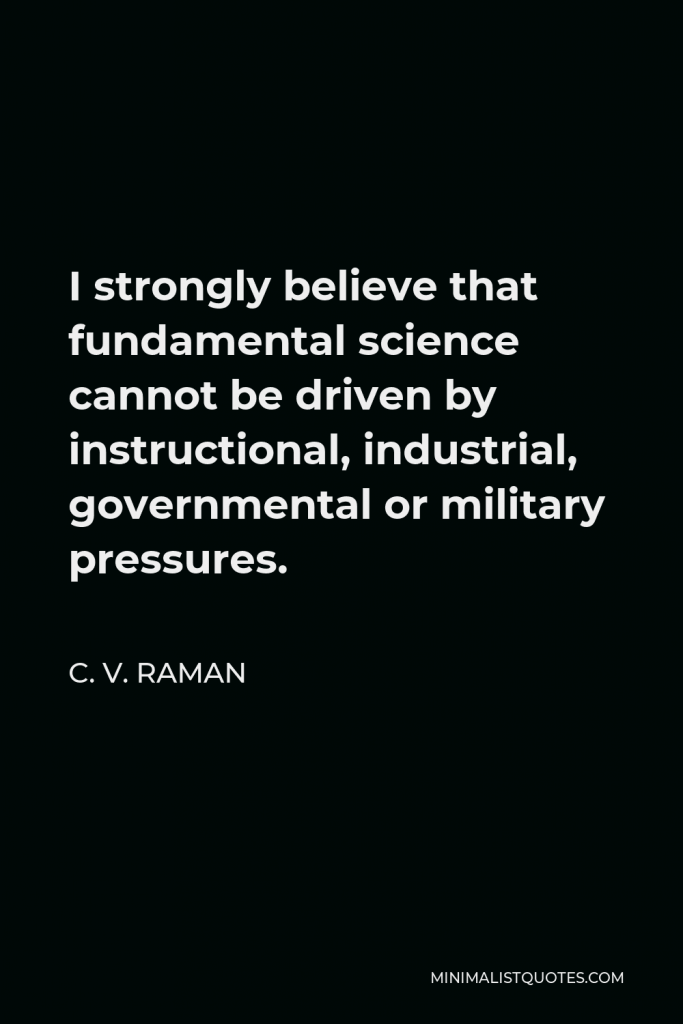

I strongly believe that fundamental science cannot be driven by instructional, industrial, governmental or military pressures.
C. V. RAMAN -





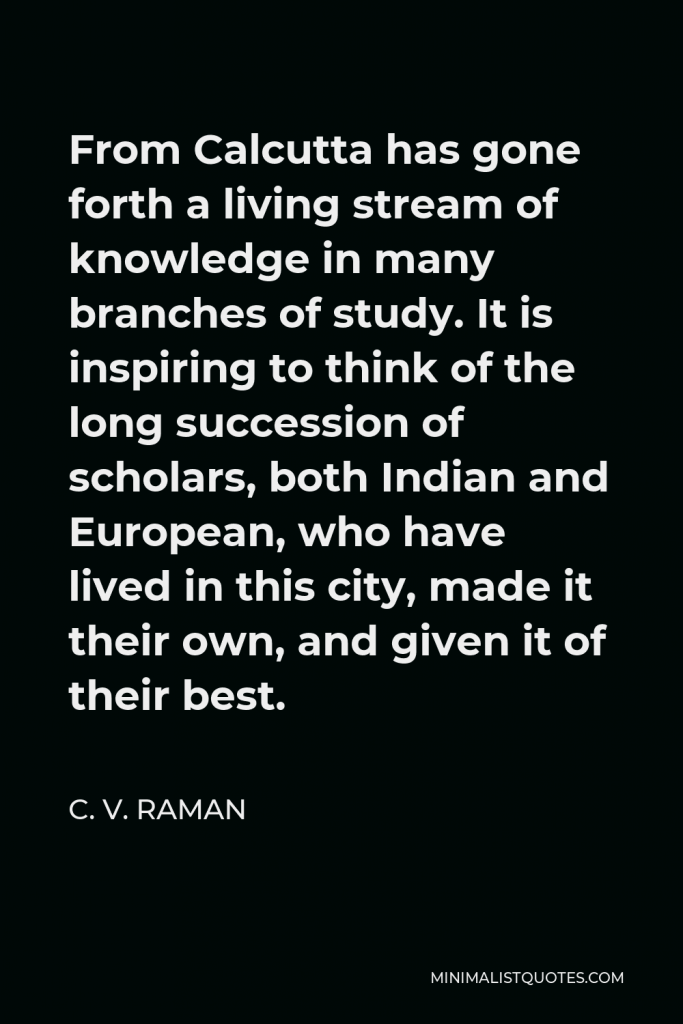

From Calcutta has gone forth a living stream of knowledge in many branches of study. It is inspiring to think of the long succession of scholars, both Indian and European, who have lived in this city, made it their own, and given it of their best.
C. V. RAMAN -





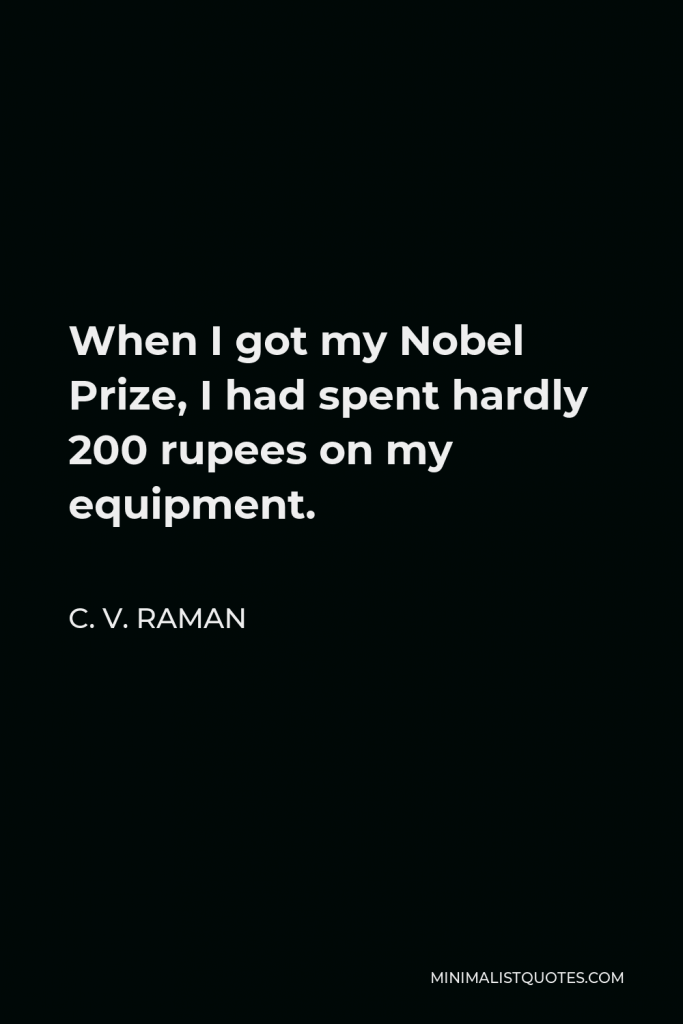

When I got my Nobel Prize, I had spent hardly 200 rupees on my equipment.
C. V. RAMAN
